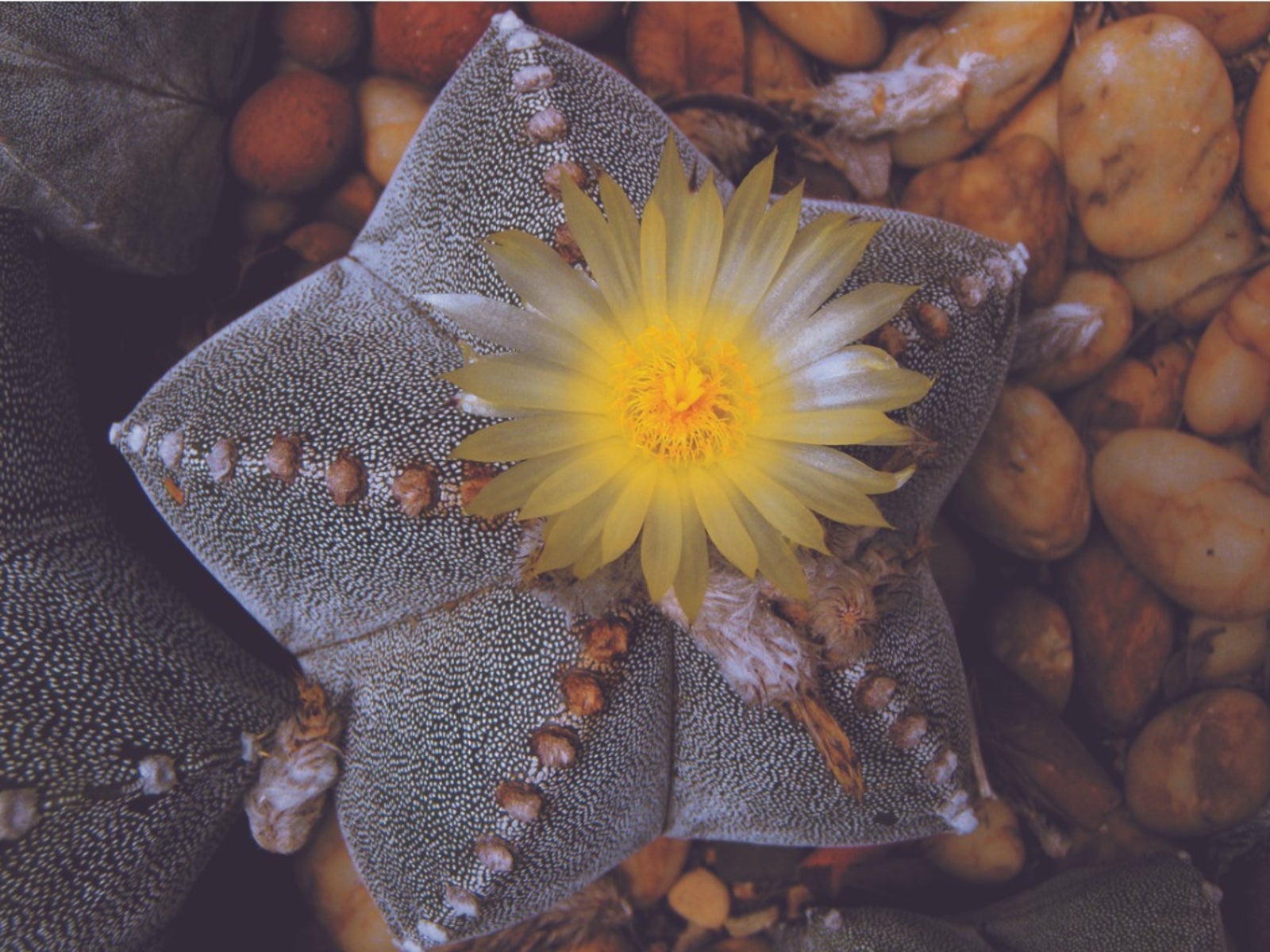Caring For Star Cactus: How To Grow A Star Cactus Plant


Sign up for the Gardening Know How newsletter today and receive a free copy of our e-book "How to Grow Delicious Tomatoes".
You are now subscribed
Your newsletter sign-up was successful
Cactus collectors love the little Astrophytum star cactus. It is a spineless cactus with a chubby round body resembling a sand dollar. Star cactus plants are easy to grow and make an interesting part of a succulent or arid garden display. Find out how to grow a star cactus and add this adorable little specimen to your dish garden or succulent pot.
Astrophytum Star Cactus Characteristics
The common names for plants are often the most descriptive and a fun way to learn about the plant. Star cactus plants (Astrophytum asteria) are also known as sea urchin cactus, sand dollar cactus or star peyote -- which refers to the flower. They are also very similar in nature to Peyote cactus plants. The round body may grow 2 to 6 inches (5 to 15 cm.) across with gently ridged sides. It is green to grayish brown and covered in tiny white dots that radiate down the ridges. The body has eight sections which are decorated with fine white hairs. The lucky gardener that provides excellent Astrophytum cactus care will be rewarded in March to May with 3-inch (7.6 cm.) yellow flowers that boast orange centers. These turn into drupes or berries in late spring, which may be gray, pink or reddish and covered in wooly hair.
How to Grow a Star Cactus
The plant has been overly collected in its habitat and the wild population is threatened. Get your star cactus plants from an accredited nursery that grows them from seed. This cactus is hardy in USDA plant hardiness zones 8 to 9 but does perfectly well in a sunny window in the home. If you get your hands on seeds, start them in seed flats with a sandy composite soil mix. Keep the soil moist until germination and then move them to a sunny location with protection from noonday sun. Mist the soil when caring for star cactus babies as overhead watering can damage the tender tissues. They will need to be kept moist until the seedling is robust and at least ½ inch (1.2 cm.) tall.
Astrophytum Cactus Care
Novice gardeners love the ease of cacti care as interior plants. They thrive on neglect, although star cactus plants will need water occasionally. The body will flatten out and turn brown if it is in dire need of water. Pot them up in a purchased cactus mix or equal parts potting soil and sand. The container should be free draining and unglazed so excess moisture evaporates readily. April is the best time to repot, but actually the plants like to be pot bound so this doesn't need to be done frequently. Fertilize June to September when caring for star cactus. Reduce the amount of water you give in the dormant winter months. Root rots, scab and mealybugs prey on this plant. Watch for signs of them, and treat immediately.
Sign up for the Gardening Know How newsletter today and receive a free copy of our e-book "How to Grow Delicious Tomatoes".

Bonnie Grant is a professional landscaper with a Certification in Urban Gardening. She has been gardening and writing for 15 years. A former professional chef, she has a passion for edible landscaping.